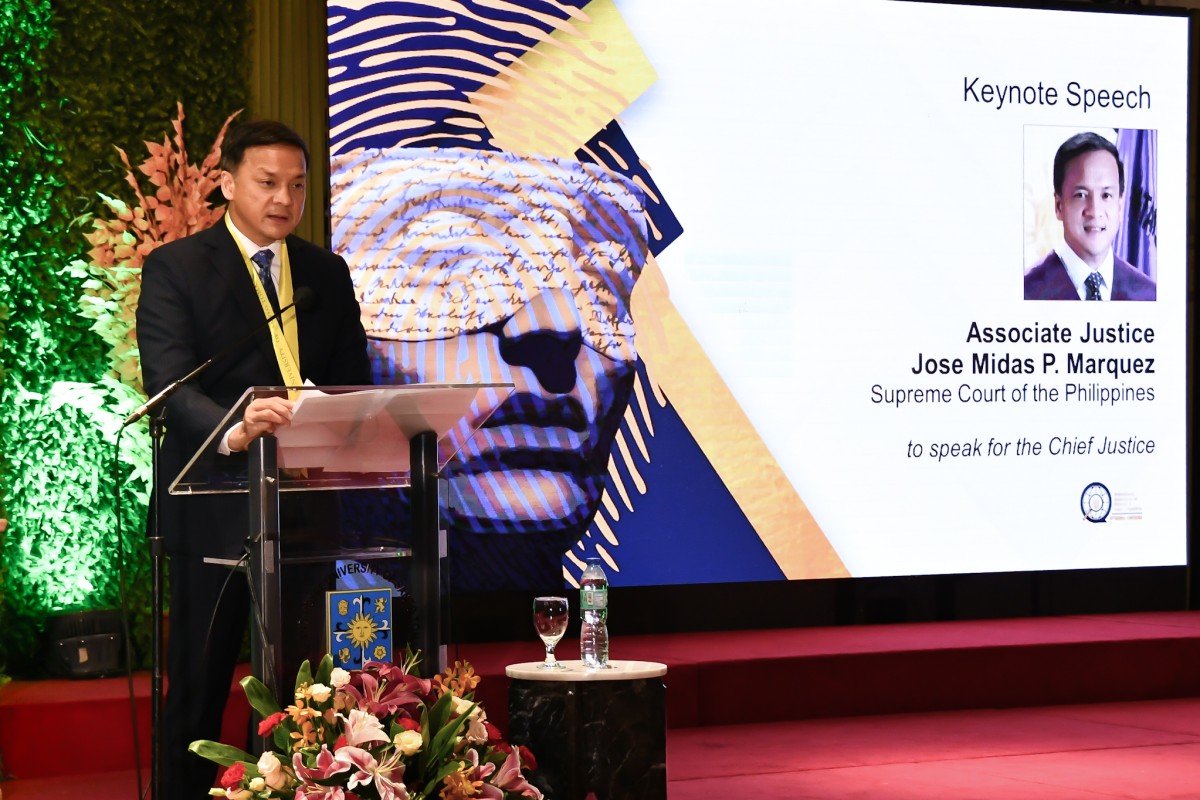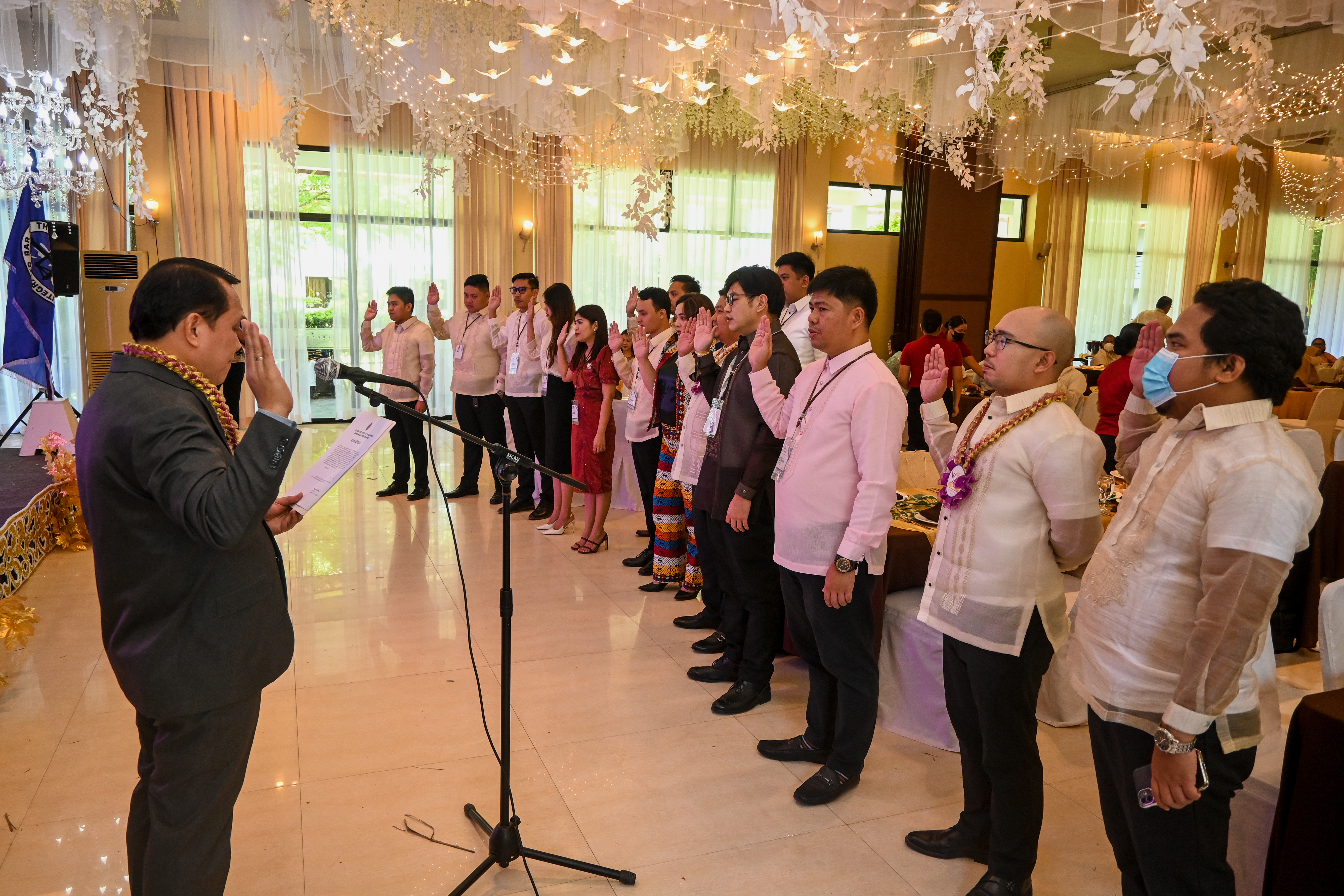MANILA -- Linguists will always remain relevant despite the emergence of artificial intelligence (AI).
Thus said Chief Justice Alexander G. Gesmundo in his keynote speech which was delivered on his behalf by Supreme Court Associate Justice Jose Midas P. Marquez at the 16th Biennial Conference of the International Association for Forensic and Legal Linguistics (IAFLL 16), held on July 4, 2023, the first day of the three-day conference, at the Grand Ballroom of BGPOP Building,
University of Santo Tomas in Manila.
The International Association for Forensic and Legal Linguistics (IAFLL) is an organization that consists primarily of linguists whose work involves them in the law.
The Chief Justice stressed that AI is not meant to replace linguists but to support and accelerate their work, even as he acknowledged that AI can lend itself well to the work of forensic and legal linguistics in analyzing vast amounts of data, identifying language patterns even from large volumes of texts, and harnessing deep learning for more complex language analysis.
“Indeed, even with the torrent of such tools, we count on linguists such as yourselves to stay at the helm of the field—especially given the issues that are likely to arise when law, language, and technology intersect,” said Chief Justice Gesmundo through Justice Marquez.
The Chief Justice recognized that alongside the promise of more efficient and more effective tools, issues are already emerging in the context of artificial intelligence. He cited as examples of these issues the transparency and accountability of AI systems and their algorithms; biases that seep through from the datasets that AI tools train on; data privacy and security issues, especially given the kind of information involved in legal contexts; the reliability and accuracy of tools; possible ethical considerations, especially as these could impact the administration of justice; and questions over the admissibility of AI-generated evidence in court.
“In navigating these issues, we will heavily depend on the expertise of practitioners such as yourselves; and in the coming years, we will look to you in the IAFLL to lead this endeavor,” the Chief Justice assured the participant-linguists.
Chief Justice Gesmundo said that the work of the Judiciary in a multilingual setting requires a delicate balancing act between standardizing courtroom language for effectiveness and efficiency on one hand, and making space for our native languages to ensure not just accuracy and fairness but also access and inclusion on the other.
He disclosed that the Supreme Court has initiatives geared towards access and inclusion relating to language. Early this year, the Court created a technical working group to draft rules for implementing the Filipino Sign Language Act in the Judiciary, which has been tasked to use Filipino Sign Language as the official language and legal interpreting for the deaf in all the public hearings,
proceedings, and transaction of our courts.
The Court has also approved the Guidelines on the Use of Gender-Fair Language in the Judiciary and Gender-Fair Courtroom Etiquette, as part of its efforts to combat sexist language in the Judiciary. Likewise, the Court is undertaking efforts to enhance public access to information and legal services via social media Access to Justice information sites with user-friendly, easy-to understand language on court services and ways to access them, using not just English and Filipino, but also the most commonly used local languages.
The initiatives on gender-fair language and enhancing public access, the Chief Justice said, are crucial activities under the Court’s blueprint of action for judicial reforms—the Strategic Plan for Judicial Innovations 2022-2027 or the SPJI.
This year’s IAFLL Conference theme is Strengthening Foundations, Rethinking Paradigms, and Navigating New Horizons. The IAFLL 16, UST said, aims to engage the participants in the discussion on the groundwork, current trends and issues, and prospect in Forensic Linguistics.
There are at least 134 participants onsite and online from 20 countries, including the Philippines, Australia, Canada, Indonesia, Japan, United Kingdom, and the United States of America. (SC)




